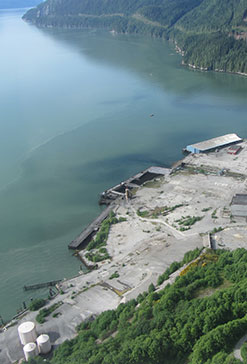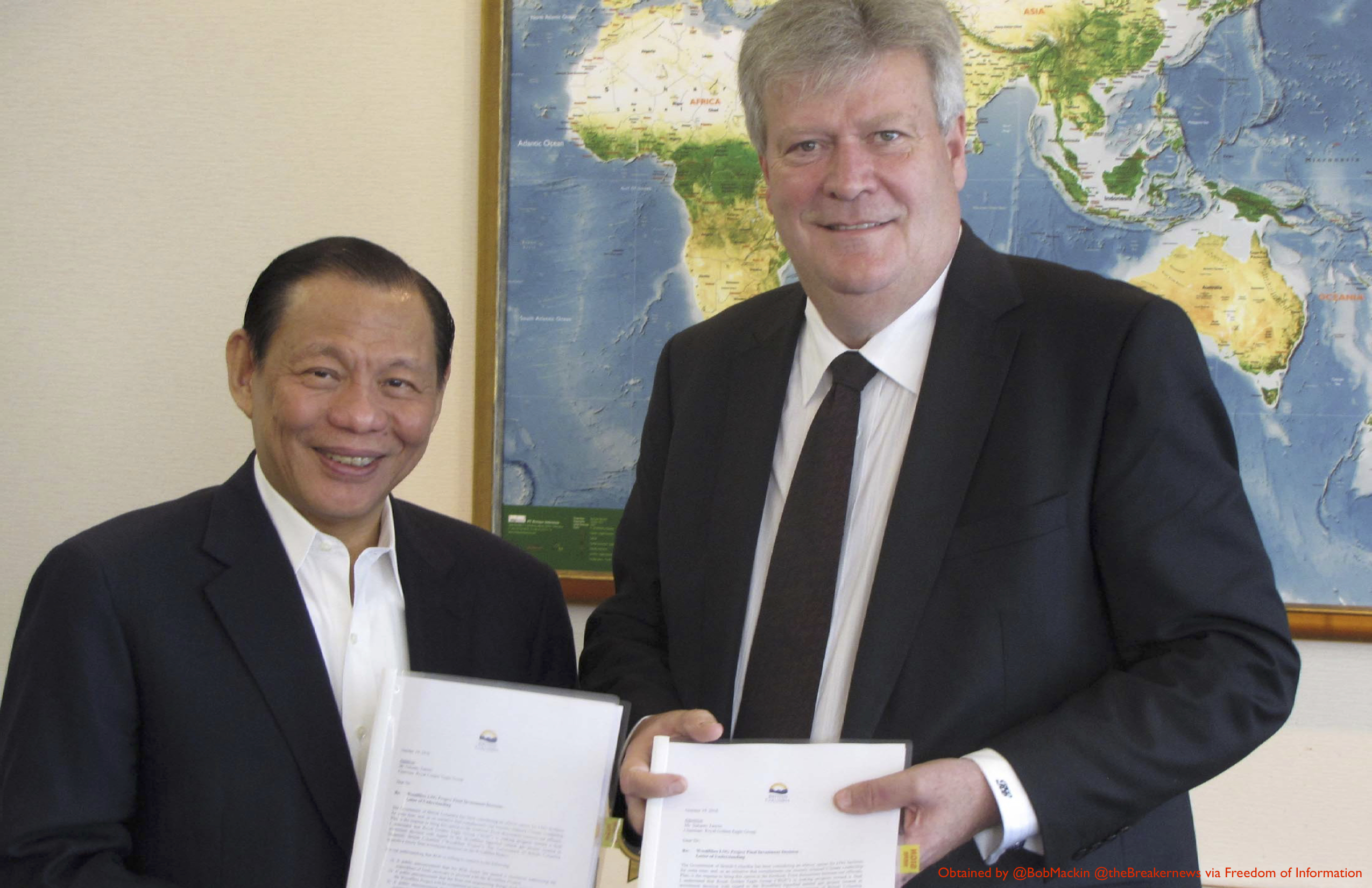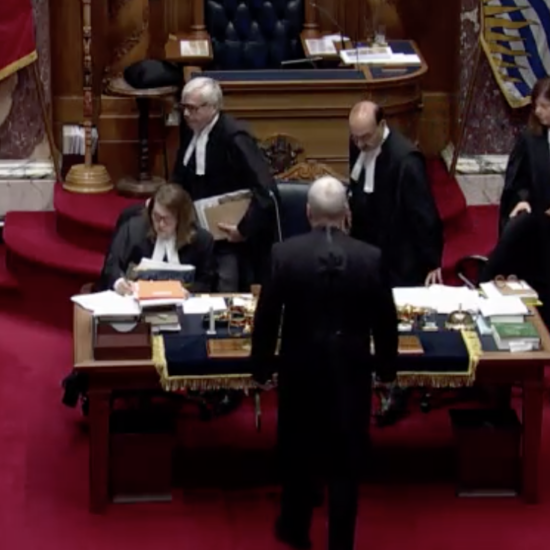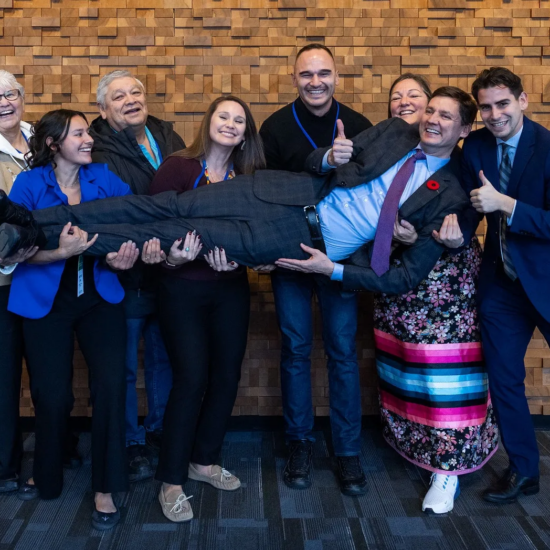
Bob Mackin
Squamish Nation council agreed to an economic benefits package worth more than $1.1 billion to approve the controversial Woodfibre LNG plant in Howe Sound, theBreaker has exclusively learned.
The elected band council voted 8-6 in favour of the $1.6 billion project at a Nov. 21 meeting. Another meeting, on Nov. 27, included a presentation on the economic benefits agreement. A source showed theBreaker a copy of the economic benefits summary, that says the 4,300-member Squamish Nation stands to gain $225.6 million in cash payments over 40 years, averaging almost $4.7 million a year.
A 422-hectare land deal includes the transfer of nine parcels of land in the Squamish Valley to the band for housing and economic development. Squamish Nation will also obtain five cultural leases throughout Howe Sound for cultural use.

Artist’s rendering of Woodfibre LNG near Squamish (WLNG)
The document does not, however, put a dollar value to how much the provincial government, WLNG and pipeline company FortisBC are each contributing to the band under the agreement. Representatives of the B.C. energy, mines and petroleum resources ministry and the two companies have not yet responded for comment.
The deal also includes:
- $872.4 million in contracts available to qualified Squamish Nation businesses and Squamish Nation member businesses;
- $16.1 million in employment opportunities, including training, education upgrades and preferential employment for Squamish Nation members for an estimated 1,600 construction phase and 330 operations phase jobs;
- $3 million in cultural and environmental legacies.
The nation has an option to buy 5% equity in the project. If employee housing is required, the land and housing units will be transferred to the nation for no cost.
The feasibility of providing natural gas from the existing pipeline to reserves in the Squamish Valley will be studied, as will the potential for providing natural gas to privately owned band lands in Squamish’s Valleycliff community. The existing Valleycliff pipeline would be moved to maximize potential development value.
The new 16-member council was sworn-in last April. Half of the councillors were newly elected in late 2017. No referendum is planned on the project, but that could become a point of discussion at the Dec. 2 annual general meeting of the band in North Vancouver.
Squamish Nation conducted its own environmental assessment in 2015 and issued a 25-point ultimatum to the company. That environmental assessment report has not been published. Federal environment minister Catherine McKenna approved the project in March 2016.
The grassroots My Sea to Sky group that opposes the energy-intensive plant on the site of a former pulp mill worries that noise, light, air and water pollution from the plant and related tanker traffic will be detrimental to whales and salmon in Howe Sound.
“This is a giveaway of public money and resources, to a foreign-owned company run by an iffy Indonesian billionaire,” said My Sea to Sky’s Eoin Finn. “This is scandal. That amount of investment, coupled with other giveaways to the LNG industry, shows that this government’s adherence to any kind of fiscal rectitude or achieving our climate goals is just hot air.”

Rich Coleman (right) and WLNG owner Sukanto Tanoto, holding documents the B.C. government refuses to release. (BC Gov)
In 2016, on the opening day of the BC Liberal party convention, the Christy Clark government said WLNG reached a final investment decision. However, more than two years later, that has apparently not yet happened. Though site preparation is underway, Fortis Inc. CEO Barry Perry told stock analysts Nov. 2 that: “They clearly have still not made their final investment decision. But our sense is that we’ll know a lot more in the next few months here. It’s getting close.”
The project faces another hurdle. On Nov. 23, Canada Border Services Agency ruled that a 45.8% tariff on fabricated industrial steel components would apply to LNG plants.
The project is ultimately owned by Singapore-based RGE Group, also known as Royal Golden Eagle. The NDP government successfully won an adjudication to keep secret the agreement made in fall 2016 between RGE chair Sukanto Tanoto and then-LNG minister Rich Coleman.
Support theBreaker.news for as low as $2 a month on Patreon. Find out how. Click here.











